Arrabawn Co-op is primarily a dairy processing business, employing 400 people, with 980 milk suppliers headquartered in Nenagh, Co Tipperary.
The milk catchment area spreads from North Tipperary into Galway and Offaly. However, milk collection stretches to 15 counties. In comparative Irish terms, Arrabawn has a milk pool the same size as Carbery (the four west Cork co-ops) and Aurivo Co-op. On an island of Ireland volume ranking, it’s in the top 10.

Alongside the milk processing business is a feed business and mill (Dan O’Connor Feeds headquartered in Limerick) and 13 agri-trading stores in the general milk catchment area. It is fair to say the Arrabawn catchment is well located to take advantage of the growth in milk supply over the last number of years since the quota brakes came off. Arrabawn has accepted over 113 new entrants in the last five years. A new survey is being drafted to capture the vision of suppliers.
Recently Arrabawn published it’s financial numbers for 2020. It was a good year for the business, with revenues continuing to climb and profits up. The earnings (EBITDA) figure is the highest it has been at €10.4m. Investment depreciation takes the shine off the earnings figure and operating profits, now standing at €2.68m, which have halved relative to where they were prior to capital investment and expansion.
According to Arrabawn, milk price paid out to dairy farmers was up a touch compared to 2019. In general, it was a solid year after a period of capital development where over €64m has been invested over the last five years.
The money was spent on the casein plant, a new effluent plant, new agri-trading stores in Nenagh and Athenry, a new warehouse in Kilconnell, new equipment and installing natural gas.
In the last five years Arrabawn’s total turnover has grown from €200m to €278m in 2020. The majority of revenue comes from the dairy business at €211m, with agri-trading sales at €67m.
Debt has grown in the last five years from €12.6m in 2016 to €42m in 2020. It peaked at €45m in 2019. Arrabawn chief financial officer Micheál O’Kelly, said: “The plan will be to reduce this level of debt further in coming years. We have had a number of years of elevated capital spending but our annual loan repayment plan means the business is not vulnerable, and still leaves us with the option of strategic investments.”
Last year Arrabawn processed an additional 14m litres on top of the milk it collected from its own farmers. With spare capacity, Arrabawn can purchase milk from others, but, like many, peak capacity is tight.
Kerry, Glanbia, Dairygold and Aurivo all border the Arrabawn catchment.
Own milk supply
Arrabawn farmers have grown from producing 311m litres in 2016 to 436m litres in 2020. That’s 125m new litres or an increase of 40% in volume over the last five years. Most of the milk has come from expanding existing farms rather than new entrants. Most of this new milk has gone into processing (making butter and powders). Global dairy markets were good in 2020 so Arrabawn gained and profits rose.
Liquid milk
Arrabawn also has a liquid milk business, but volumes going into this have trended downwards over the last five years and proportionally the volume is now just 12% of all milk processed.
In 2020 the Arrabawn liquid business had a difficult year, with the loss of a retailer contract and a product recall at its liquid milk processing facility at Kilconnell.
Milk price
According to the annual report, the milk price paid out in 2020 averaged 34.37c/l. This is the total money paid out to all suppliers divided by the litres. Last year the farmer directors of Arrabawn decided not to take part in the KPMG/Irish Farmers Journal annual manufacturing milk price review. They wanted the liquid milk money to be included in the manufacturing milk exercise. When we look back over previous years, the price reported in the annual report is about 2.5 c/l ahead of the manufacturing milk price paid out as established by KPMG.
Key stats
Arrabawn
2020 v 2019
Total revenue €278m from €265m.Operating profit €2.68m from €1.04m.Agri trading revenue €67m from €62m.Dairy trading revenue €211m from €203m.Milk processed 450m litres from 422m litres.Q&A
with Conor Ryan, Arrabawn chief executive
Have you enough processing
capacity to meet the ambitions
of your suppliers?
Recent investment commissioned last year built in a 50% capacity lift, however, we were up 6.6% in 2020 and supply is strong and running 8% ahead this week. We will carry out a comprehensive survey to get an up-to-date handle, but thankfully this year we are past peak and comfortable.
The new investment in casein – will you market that product outside of Ornua?
No, like the butter it will be a mix of Ornua and our own sales. We have got on very well with Ornua over the last two to three years and they package our casein product with products from other processors to meet demand from large multinational companies.
Should Ornua be giving more
back to the co-ops rather than increasing profits?
Ornua had an exceptional year in exceptional circumstances in 2020. Like anyone selling, yes, we would like more returned and they don’t incur the capital spend we must undertake. However, at the same time they are very professional to do business with and the collective invoice discounting system they facilitate benefits us.
Liquid milk – as a business it’s challenged even without problems, and you had a difficult 2020?
Yes we lost a contract and had a quality issue that is now under control. As per the accounts it cost us €1.1m. Look, liquid in Ireland is a 500m litre business and it’s not getting any bigger so the big players are fighting for the same business.
Any plan to take debt levels down significantly?
No, the milk business must pay for it now. We have no non-core assets to sell. We have tidied up the owned share portfolio and the recent sale of a site in Thurles. In hindsight, you could say we were lucky to apply for planning and complete the work when we did. We got planning in December 2017 and finished the capacity and effluent plant last year. The new plant entrance will be completed soon.
Numbers employed have grown from 350 to 400 in five years as the business has grown – is that it for now?
Yes, most of the new staff are in milk processing and the fact we are running 24/7 means the capacity is there. We are lucky to have a dedicated team.
Would you contract process milk?
Yes we do some and its more fashionable now, but the demand for it is when we are near peak ourselves so its limited. Like others we have no product that is price competitive off-peak. Despite this, we are getting more off-season milk than we have been in the past.
A good year on dairy markets, a good year for agri-trading stores, and more milk to process and sell means Arrabawn like most of the other co-ops had a good year in 2020.
It now has processing capacity in place with a plan for adding value using its casein product. Ornua and the Kerrygold brand are helping.
In relative, terms the Arrabawn milk pool is small compared to Glanbia, which is six times it’s size, and Lakeland and Dairygold, which are three times it’s size. However, scale is only part of the story and if the right product is matched with good management it can deliver.
Ornua is helping these businesses to compete as it brings a collective scale and customers. Debt levels are still high but management is confident it can manage the payback.
The liquid milk business is not getting any better and once again this dragged on the business in 2020.
Arrabawn management would take another set of numbers like 2020 and with markets and supply like they are, it might just get it in 2021.
Read more
Gap between Ornua and farmgate milk price widens
Dairy Trends: arrows point upwards for dairy commodities
Arrabawn Co-op is primarily a dairy processing business, employing 400 people, with 980 milk suppliers headquartered in Nenagh, Co Tipperary.
The milk catchment area spreads from North Tipperary into Galway and Offaly. However, milk collection stretches to 15 counties. In comparative Irish terms, Arrabawn has a milk pool the same size as Carbery (the four west Cork co-ops) and Aurivo Co-op. On an island of Ireland volume ranking, it’s in the top 10.

Alongside the milk processing business is a feed business and mill (Dan O’Connor Feeds headquartered in Limerick) and 13 agri-trading stores in the general milk catchment area. It is fair to say the Arrabawn catchment is well located to take advantage of the growth in milk supply over the last number of years since the quota brakes came off. Arrabawn has accepted over 113 new entrants in the last five years. A new survey is being drafted to capture the vision of suppliers.
Recently Arrabawn published it’s financial numbers for 2020. It was a good year for the business, with revenues continuing to climb and profits up. The earnings (EBITDA) figure is the highest it has been at €10.4m. Investment depreciation takes the shine off the earnings figure and operating profits, now standing at €2.68m, which have halved relative to where they were prior to capital investment and expansion.
According to Arrabawn, milk price paid out to dairy farmers was up a touch compared to 2019. In general, it was a solid year after a period of capital development where over €64m has been invested over the last five years.
The money was spent on the casein plant, a new effluent plant, new agri-trading stores in Nenagh and Athenry, a new warehouse in Kilconnell, new equipment and installing natural gas.
In the last five years Arrabawn’s total turnover has grown from €200m to €278m in 2020. The majority of revenue comes from the dairy business at €211m, with agri-trading sales at €67m.
Debt has grown in the last five years from €12.6m in 2016 to €42m in 2020. It peaked at €45m in 2019. Arrabawn chief financial officer Micheál O’Kelly, said: “The plan will be to reduce this level of debt further in coming years. We have had a number of years of elevated capital spending but our annual loan repayment plan means the business is not vulnerable, and still leaves us with the option of strategic investments.”
Last year Arrabawn processed an additional 14m litres on top of the milk it collected from its own farmers. With spare capacity, Arrabawn can purchase milk from others, but, like many, peak capacity is tight.
Kerry, Glanbia, Dairygold and Aurivo all border the Arrabawn catchment.
Own milk supply
Arrabawn farmers have grown from producing 311m litres in 2016 to 436m litres in 2020. That’s 125m new litres or an increase of 40% in volume over the last five years. Most of the milk has come from expanding existing farms rather than new entrants. Most of this new milk has gone into processing (making butter and powders). Global dairy markets were good in 2020 so Arrabawn gained and profits rose.
Liquid milk
Arrabawn also has a liquid milk business, but volumes going into this have trended downwards over the last five years and proportionally the volume is now just 12% of all milk processed.
In 2020 the Arrabawn liquid business had a difficult year, with the loss of a retailer contract and a product recall at its liquid milk processing facility at Kilconnell.
Milk price
According to the annual report, the milk price paid out in 2020 averaged 34.37c/l. This is the total money paid out to all suppliers divided by the litres. Last year the farmer directors of Arrabawn decided not to take part in the KPMG/Irish Farmers Journal annual manufacturing milk price review. They wanted the liquid milk money to be included in the manufacturing milk exercise. When we look back over previous years, the price reported in the annual report is about 2.5 c/l ahead of the manufacturing milk price paid out as established by KPMG.
Key stats
Arrabawn
2020 v 2019
Total revenue €278m from €265m.Operating profit €2.68m from €1.04m.Agri trading revenue €67m from €62m.Dairy trading revenue €211m from €203m.Milk processed 450m litres from 422m litres.Q&A
with Conor Ryan, Arrabawn chief executive
Have you enough processing
capacity to meet the ambitions
of your suppliers?
Recent investment commissioned last year built in a 50% capacity lift, however, we were up 6.6% in 2020 and supply is strong and running 8% ahead this week. We will carry out a comprehensive survey to get an up-to-date handle, but thankfully this year we are past peak and comfortable.
The new investment in casein – will you market that product outside of Ornua?
No, like the butter it will be a mix of Ornua and our own sales. We have got on very well with Ornua over the last two to three years and they package our casein product with products from other processors to meet demand from large multinational companies.
Should Ornua be giving more
back to the co-ops rather than increasing profits?
Ornua had an exceptional year in exceptional circumstances in 2020. Like anyone selling, yes, we would like more returned and they don’t incur the capital spend we must undertake. However, at the same time they are very professional to do business with and the collective invoice discounting system they facilitate benefits us.
Liquid milk – as a business it’s challenged even without problems, and you had a difficult 2020?
Yes we lost a contract and had a quality issue that is now under control. As per the accounts it cost us €1.1m. Look, liquid in Ireland is a 500m litre business and it’s not getting any bigger so the big players are fighting for the same business.
Any plan to take debt levels down significantly?
No, the milk business must pay for it now. We have no non-core assets to sell. We have tidied up the owned share portfolio and the recent sale of a site in Thurles. In hindsight, you could say we were lucky to apply for planning and complete the work when we did. We got planning in December 2017 and finished the capacity and effluent plant last year. The new plant entrance will be completed soon.
Numbers employed have grown from 350 to 400 in five years as the business has grown – is that it for now?
Yes, most of the new staff are in milk processing and the fact we are running 24/7 means the capacity is there. We are lucky to have a dedicated team.
Would you contract process milk?
Yes we do some and its more fashionable now, but the demand for it is when we are near peak ourselves so its limited. Like others we have no product that is price competitive off-peak. Despite this, we are getting more off-season milk than we have been in the past.
A good year on dairy markets, a good year for agri-trading stores, and more milk to process and sell means Arrabawn like most of the other co-ops had a good year in 2020.
It now has processing capacity in place with a plan for adding value using its casein product. Ornua and the Kerrygold brand are helping.
In relative, terms the Arrabawn milk pool is small compared to Glanbia, which is six times it’s size, and Lakeland and Dairygold, which are three times it’s size. However, scale is only part of the story and if the right product is matched with good management it can deliver.
Ornua is helping these businesses to compete as it brings a collective scale and customers. Debt levels are still high but management is confident it can manage the payback.
The liquid milk business is not getting any better and once again this dragged on the business in 2020.
Arrabawn management would take another set of numbers like 2020 and with markets and supply like they are, it might just get it in 2021.
Read more
Gap between Ornua and farmgate milk price widens
Dairy Trends: arrows point upwards for dairy commodities




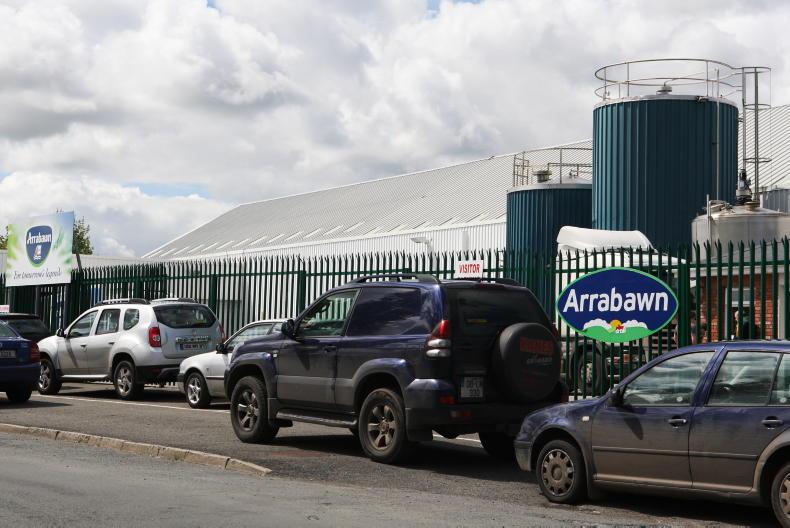

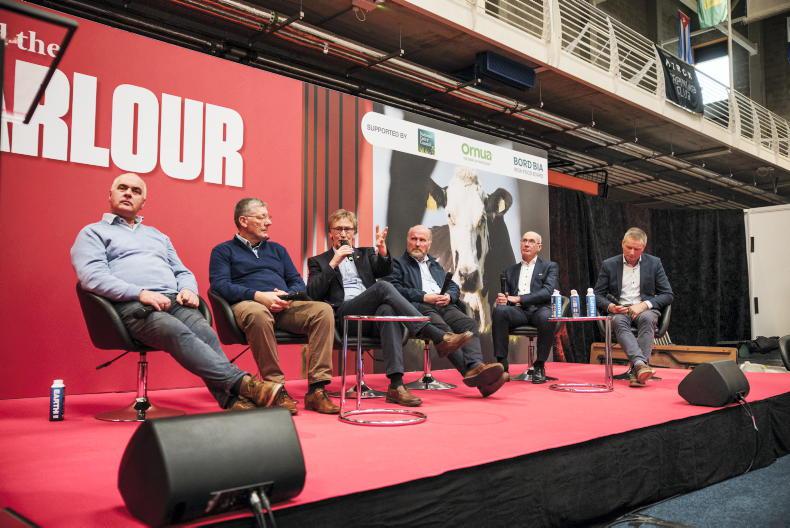

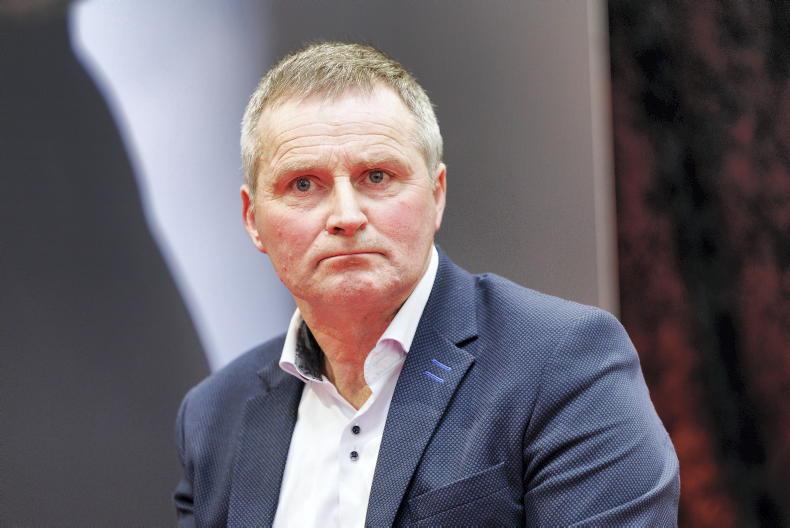
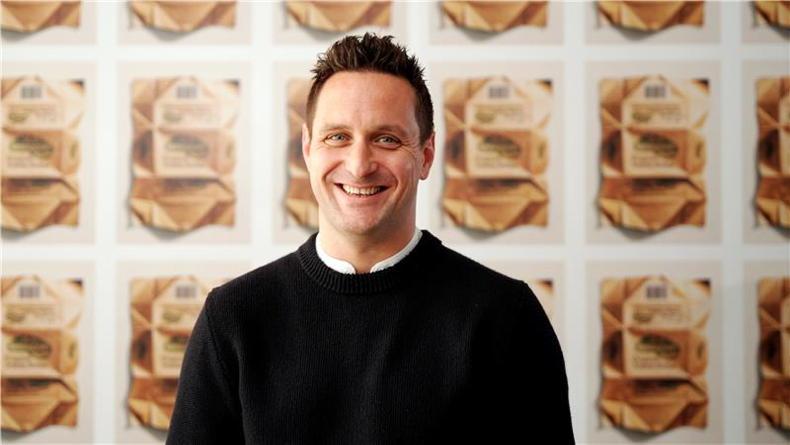
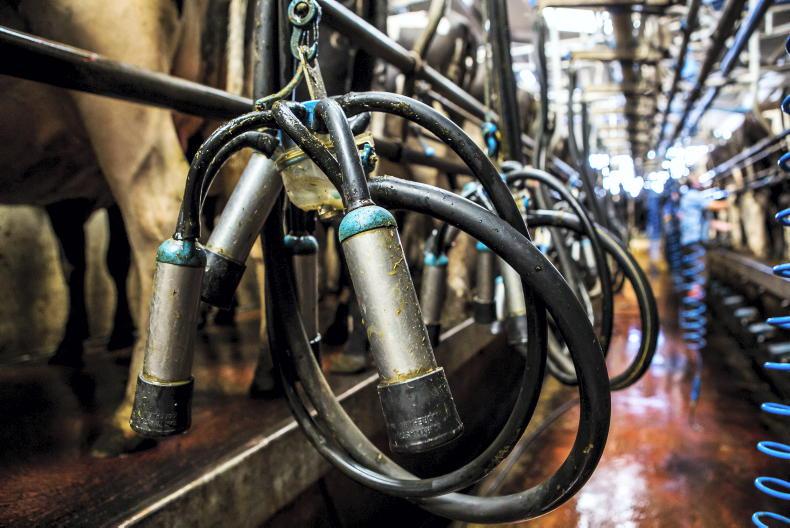
SHARING OPTIONS